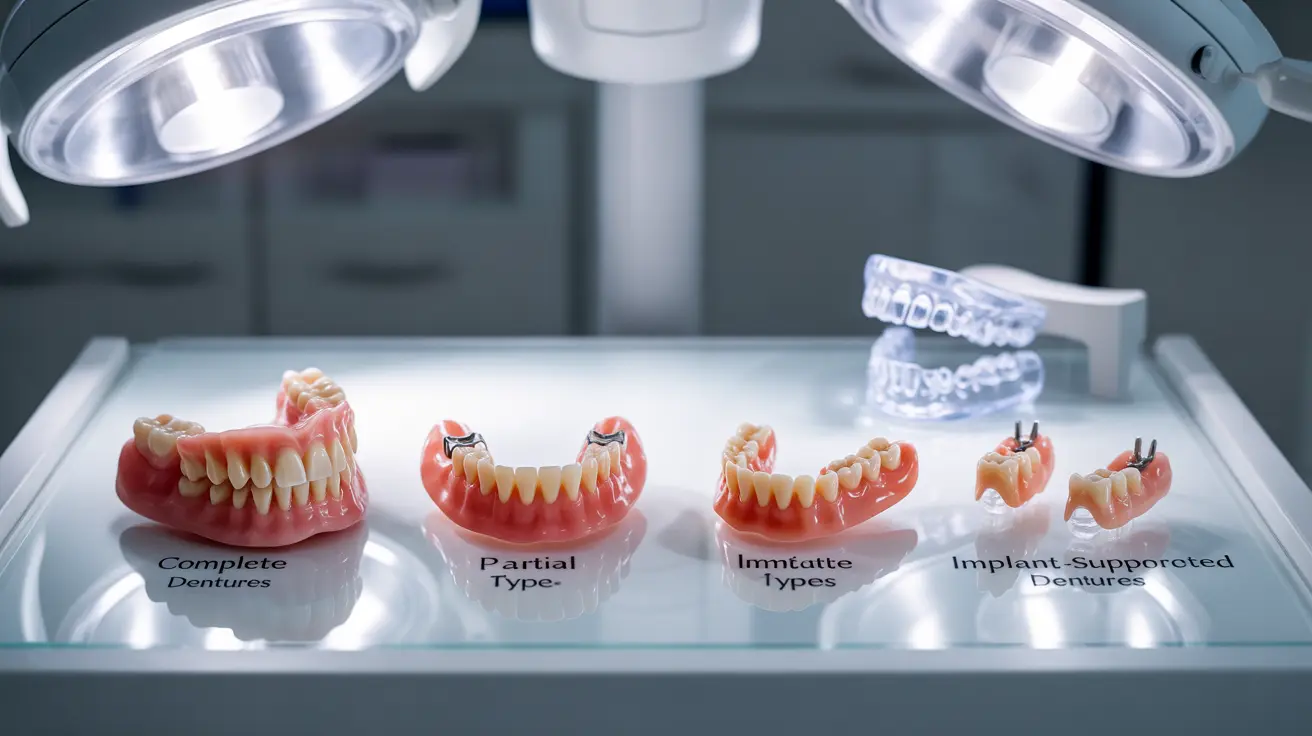For millions of Americans, false teeth provide a reliable solution to tooth loss, helping restore both function and confidence. Whether you're considering dentures for the first time or looking to better understand your options, this comprehensive guide will help you navigate the world of false teeth with confidence.
Modern false teeth have come a long way from their historical counterparts, offering comfortable, natural-looking solutions that can dramatically improve your quality of life. Let's explore everything you need to know about choosing, wearing, and maintaining false teeth.
Types of False Teeth Available
Understanding the different types of false teeth can help you make an informed decision about what might work best for your situation:
Complete Dentures
These replace all teeth in either the upper or lower jaw, or both. They rest directly on the gums and are removable for cleaning and maintenance. Complete dentures are custom-made to fit your mouth precisely, ensuring comfort and functionality.
Partial Dentures
When you still have some healthy natural teeth, partial dentures can fill in the gaps. These attachto your remaining teeth using clasps or precision attachments, providing stability while preserving your natural teeth.
Immediate Dentures
Placed immediately after tooth extraction, these temporary dentures allow you to avoid being without teeth during the healing process. They typically require adjustment or replacement once your gums have fully healed.
Implant-Supported Dentures
These advanced false teeth attach to dental implants surgically placed in your jawbone, offering superior stability and preventing bone loss. While more expensive, they provide a more permanent solution that closely mimics natural teeth.
The Fitting Process and What to Expect
Getting fitted for false teeth involves several steps and appointments to ensure the best possible outcome:
- Initial consultation and oral examination
- Taking impressions of your mouth
- Creating and fitting temporary dentures if needed
- Multiple adjustment appointments
- Final fitting and comfort checks
Your dentist will work closely with you throughout this process, making necessary adjustments to ensure your false teeth fit comfortably and function properly.
Proper Care and Maintenance
Maintaining your false teeth properly is crucial for their longevity and your oral health:
- Clean your dentures daily with appropriate denture cleaners
- Remove and rinse after eating
- Brush your gums, tongue, and palate daily
- Soak dentures overnight in approved solution
- Handle with care to avoid damage
- Schedule regular dental check-ups
Potential Challenges and Solutions
While modern false teeth are designed for comfort, some initial challenges are common:
- Adjustment period for speaking and eating
- Possible gum irritation
- Changes in saliva production
- Shifting or looseness over time
Most issues can be resolved through proper adjustments and maintaining good communication with your dental care provider.
Cost Considerations and Insurance
The cost of false teeth varies significantly based on type, materials, and additional procedures needed. While basic dentures might cost a few hundred dollars, premium options can run into thousands. Many dental insurance plans provide partial coverage, and payment plans are often available through dental offices.
Frequently Asked Questions
What types of false teeth (dentures) are available and how do I know which is right for me?
The main types include complete dentures, partial dentures, immediate dentures, and implant-supported dentures. The best choice depends on your specific situation, including how many teeth you're missing, your budget, and your oral health. Consult with a dentist to determine the most suitable option.
What should I expect during the denture fitting and adjustment process?
The process typically involves multiple appointments over several weeks, including impressions, fittings, and adjustments. Expect some initial discomfort and a learning period as you adjust to speaking and eating with your new dentures.
How do I properly care for and maintain my false teeth to ensure they last?
Clean your dentures daily with appropriate cleaners, remove and rinse after meals, brush your mouth thoroughly, and soak dentures overnight. Handle them carefully and visit your dentist regularly for professional maintenance.
What are the potential risks or complications associated with wearing dentures?
Common issues include initial discomfort, speaking and eating adjustments, possible gum irritation, and changes in saliva production. With proper care and regular dental visits, most complications can be prevented or effectively managed.
Does dental insurance typically cover the cost of false teeth, and what are my options if I don't have coverage?
Many dental insurance plans provide partial coverage for false teeth. If you don't have insurance, options include payment plans through dental offices, dental savings plans, or financing through third-party providers. Some dental schools and community health centers also offer reduced-cost services.




